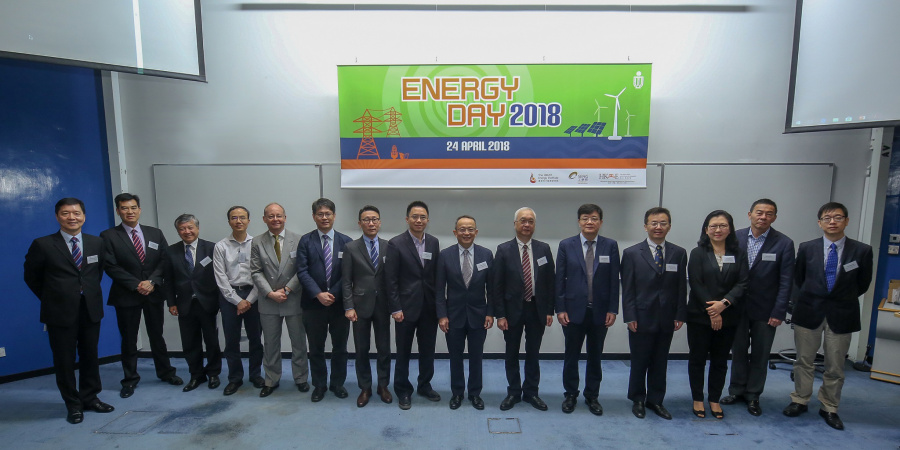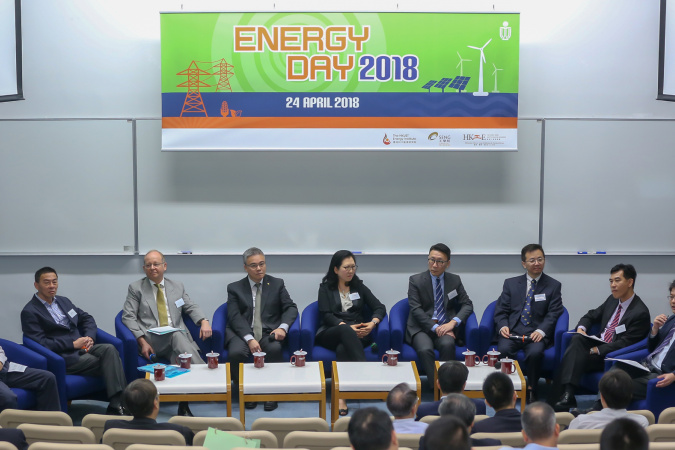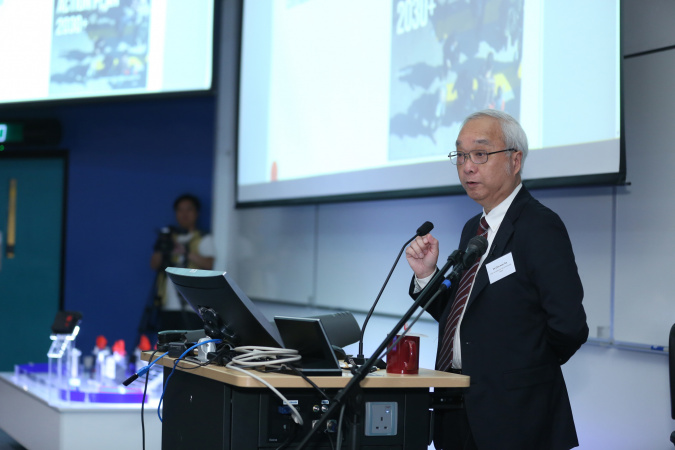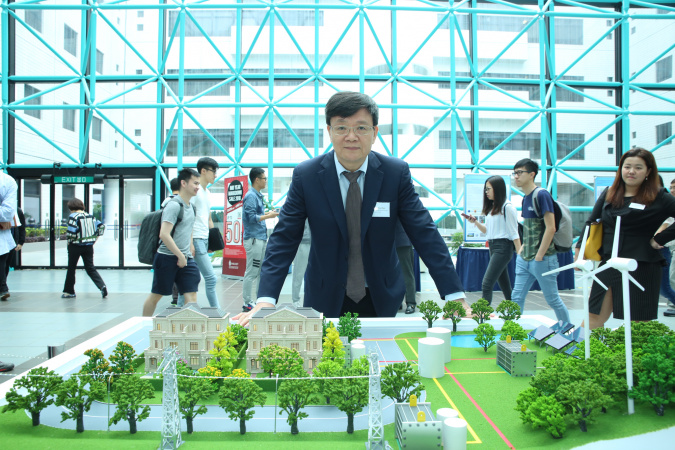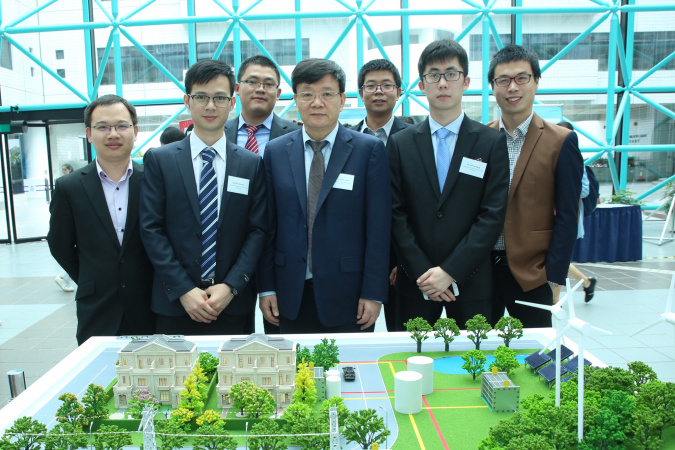HKUST Leads Research into e-Fuel Energy Storage Technology
The Hong Kong University of Science and Technology (HKUST) is at the global forefront for the development of an e-fuel energy storage technology that will revolutionize the way energy is currently stored, and open up brand new possibilities for worldwide application.
This project, headed by Prof Tianshou ZHAO, Cheong Ying Chan Professor of Engineering and Environment and Director of the HKUST Energy Institute, was one of the projects featured at the HKUST Energy Day held today (Tuesday, April 24) on campus.
The e-fuel project has recently been awarded HK$50 million by the University Grants Committee, and pools together academics from The University of Hong Kong, The Chinese University of Hong Kong, and The Hong Kong Polytechnic University.
Prof Zhao said, “This project focuses on the creation of electrically rechargeable liquid fuels, or ‘e-fuels’. The e-fuels can store energy from renewable yet intermittent sources like solar and wind energy, and release the energy wherever and whenever needed. Unlike other energy storage options, e-fuel systems will be efficient, site-independent, safe and durable. This project will solve the intermittency issue and enable a new energy mix that is both sustainable and reliable.”
The e-fuel operates in a similar way as gasoline, but instead of being a fossil fuel, it will be renewable and therefore environmentally friendly.
The e-fuel charger will electro-chemically convert electricity into e-fuels, which can then be converted back into electricity for use by using an e-fuel cell. Wind and solar power can be converted into e-fuels, which can be stored or transported to where they are needed without losing any quality.
The Keynote Lecture at the HKUST Energy Day was delivered by Mr Chin-wan TSE, BBS, JP, Under Secretary for the Environment, HKSAR Government.
He said, “The Paris Agreement has highlighted the promotion of renewable energy (RE) as one initiative to combat climate change. As set out in Hong Kong's Climate Action Plan 2030+, the Government will take the lead to apply RE on a wider and larger scale in the immediate years ahead. Also, the Government has announced recently new measures including the Feed-in-Tariff to encourage the private sector to adopt RE. As a next step, the Government is going to launch a bottom-up and stakeholder-led engagement exercise with the community on developing a long-term de-carbonization strategy for Hong Kong.”

